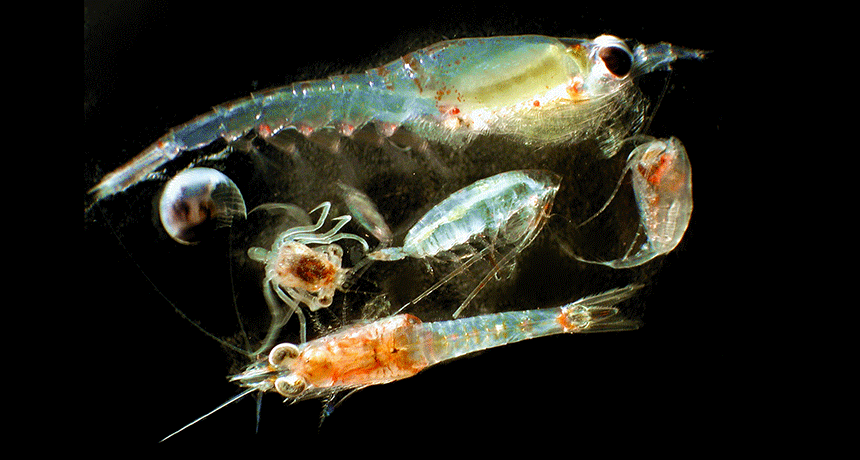algae Single-celled organisms, once considered plants (they aren’t). As aquatic organisms, they grow in water. Like green plants, they depend on sunlight to make their food.
Arctic A region that falls within the Arctic Circle. The edge of that circle is defined as the northernmost point at which the sun is visible on the northern winter solstice and the southernmost point at which the midnight sun can be seen on the northern summer solstice. The high Arctic is that most northerly third of this region. It’s a region dominated by snow cover much of the year.
birds Warm-blooded animals with wings that first showed up during the time of the dinosaurs. Birds are jacketed in feathers and produce young from the eggs they deposit in some sort of nest. Most birds fly, but throughout history there have been the occasional species that don’t.
diet The foods and liquids ingested by an animal to provide the nutrition it needs to grow and maintain health. (verb) To adopt a specific food-intake plan for the purpose of controlling body weight.
microscope An instrument used to view objects, like bacteria, or the single cells of plants or animals, that are too small to be visible to the unaided eye.
organism Any living thing, from elephants and plants to bacteria and other types of single-celled life.
phytoplankton Sometimes referred to as microalgae, these are microscopic plants and plant-like organisms that live in the ocean. Most float and reside in regions where sunlight filters down. Much like land-based plants, these organisms contain chlorophyll. They also require sunlight to live and grow. Phytoplankton serve as a base of the oceanic food web.
plankton A small organism that drifts or floats in the sea. Depending on the species, plankton range from microscopic sizes to organisms about the size of a flea. Some are tiny animals. Others are plantlike organisms. Although individual plankton are very small, they form massive colonies, numbering in the billions. The largest animal in the world, the blue whale, lives on plankton.
predator (adjective: predatory) A creature that preys on other animals for most or all of its food.
prey (n.) Animal species eaten by others. (v.) To attack and eat another species.
sea An ocean (or region that is part of an ocean). Unlike lakes and streams, seawater — or ocean water — is salty.
species A group of similar organisms capable of producing offspring that can survive and reproduce.
sun The star at the center of Earth’s solar system. It’s an average size star about 26,000 light-years from the center of the Milky Way galaxy. Also a term for any sunlike star.
whale A common, but fairly imprecise, term for a class of large mammals that lives in the ocean. This group includes dolphins and porpoises.
zooplankton Small organisms that drift in the sea. Zooplankton are tiny animals that eat other plankton. They also serve as an important food source for other marine creatures.

